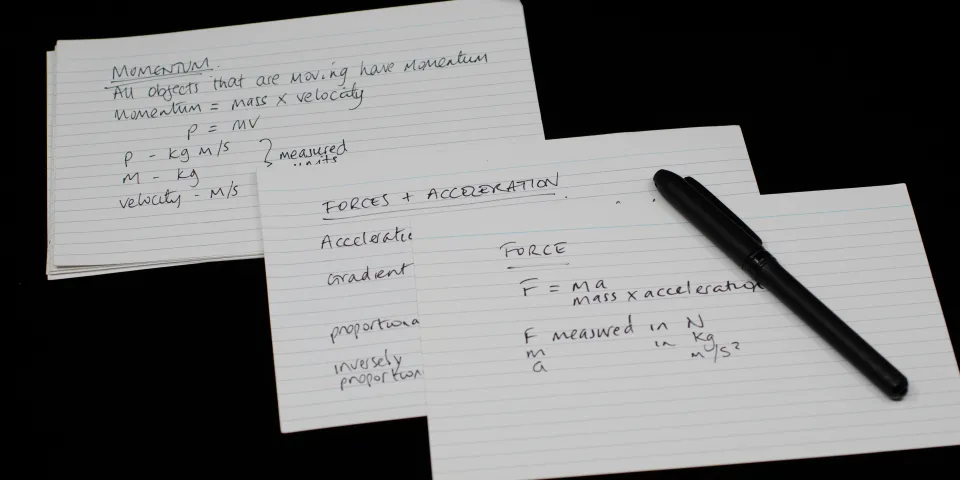Latest 
 Career Development Denise Alexander
Career Development Denise Alexander
Recent Blog Posts


Do you have a big exam coming up or need to figure out a way to memorize important facts from your classes during the school year? Finding an effective study method that works for you can be essential for success throughout your educational pathway.
Have you ever considered flashcards? They might have been one of the first study methods introduced to you in elementary school, but don’t laugh — there is science behind this common study technique!
Here’s more information about the science behind flashcards and why they might be an ideal option in college:
Flashcards are effective because they promote active recall in your brain, which is the process by which we retrieve a memory. Seeing a term and then actively attempting to remember the meaning helps to move it from short-term to long-term memory.
You’re also unconsciously engaging your metacognition, or awareness of one’s own thinking when using flashcards. This occurs when you decide if you’ll need to review more, or if the terms are committed to memory based on how confident you felt in your answer. Spaced repetition, a memorization technique, also comes into play when you repeat more challenging flashcards and set aside ones you feel you’ve learned. Self-awareness plays a key role in the effectiveness of flashcards.
Researchers have found favorable results when comparing the test grades of students who used flashcards as a study method to those who didn’t. One study looked at 470 students in an Intro to Psychology college course. Over 70% of the class used flashcards to study, and they performed significantly better on exams than those who didn’t. Another reason to test out flashcards for your next exam!
Making your own flashcards can help commit the material you need to learn to memory. Some tips:
More than 50% of college students say they use flashcards as a study tool. That doesn’t mean they’re all using them effectively though! Here are a few common mistakes to avoid:
If flashcards aren’t your thing, test out these other studying methods that are backed by research as well:
When studying, what works for one person may not work for another. Keep trying different study methods until you find the one that helps your learning. Study hard and go ace that test!
BLS pay estimates calculate the median annual wage for various occupations. Per the BLS the median wage for an occupation is: "The wage at which half of the workers in the occupation earned more than that amount, and half earned less. Median wage data are from the BLS Occupational Employment and Wage Statistics survey." Bureau of Labor Statistics (BLS), U.S. Department of Labor, Occupational Outlook Handbook 2024. BLS median wage estimates do not represent entry-level wages and/or salaries. Multiple factors, including prior experience, age, geographic market in which you want to work, and degree level and field, will affect career outcomes, including starting salary and earnings as an experienced employee. Herzing neither represents that its graduates will earn the median salaries calculated by BLS for a particular job nor guarantees that graduation from its program will result in a job, promotion, particular wage or salary, or other career growth.
Get the latest news you need to know, from study hacks to interview tips to career advancement. Have it delivered right to your inbox biweekly.